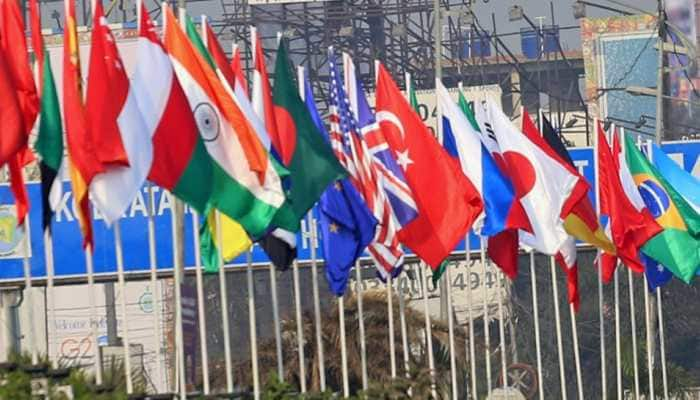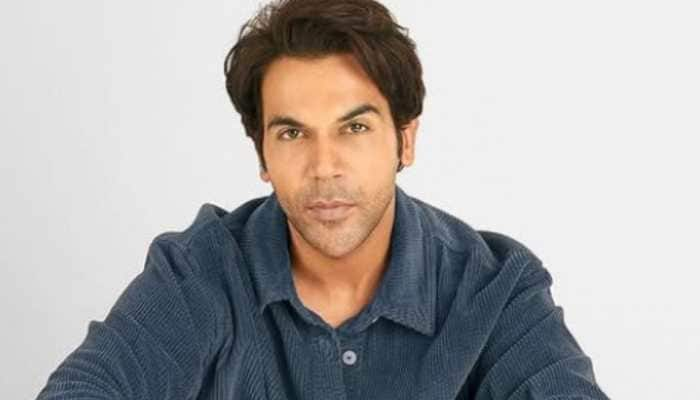GST Bill passed in Rajya Sabha; decks cleared for India's biggest tax reform
In the biggest tax reform since Independence, the national sales tax or GST Bill was Wednesday approved by the Rajya Sabha to replace a raft of different state and local taxes with a single unified value added tax system to turn the country into world's biggest single market.
Trending Photos
New Delhi: In the biggest tax reform since Independence, the national sales tax or GST Bill was Wednesday approved by the Rajya Sabha to replace a raft of different state and local taxes with a single unified value added tax system to turn the country into world's biggest single market.
The 66-year-old Constitution, which gives power to Centre to levy taxes like excise, and empowers states to collect retail sales taxes, was amended though the 122nd Constitution Amendment Bill.
Prime Minister Narendra Modi said the GST will "also be the best example of cooperative federalism" and "Together we will take India to new heights of progress".
The legislation was approved by the Upper House with 203 votes in favour and none against, after a seven-hour debate during which a rare bonhomie was witnessed among the ruling and the opposition parties.
Replying to the debate, Finance Minister Arun Jaitley said the GST rate will be kept "as low as possible" but did not commit to a specific rate despite opposition benches pressing for it.
"We will also try and keep the rate as low as possible, certainly much lower than what the present situation is. And as compliance increases, the possibility of that rate coming down further would be there," he said.
The tax rate, he said, would be decided by the GST Council comprising of Union Finance Minister and representatives of all 29 states.
"We must trust the sense of responsibility of the states who belong to the same political parties as us. Who in their last meeting said that our guiding principle is going to be -- one we will lower the burden of tax," he said.
The Finance Minister said presently 80 percent of goods attract 12.5 percent of Central excise duty while at the state level 55 percent of items are charged with 14.5 percent VAT or sales tax.
The weighted average of the two in 65 percent of the items comes to 27 percent. Adding cess, octroi and entry tax takes the figure to 30 percent, he said.
In deciding the GST rate, "we are guided by two factors -- 27 percent is too high, it is inflationary, it costs the people, so it should come down... The second they said we will collect what is essential for our present revenue requirement," he said.
Jaitley said members will have an opportunity to speak on subjects when the supporting GST Bill comes up in November.
The GST, he said, will make the system more efficient, increase tax compliance and tax avoidance will become more difficult as it will be detected at some stage or the other.
Also, there will be no cascading effect of tax on tax, he said adding there are certain items which will either attract lower rate of tax or no tax at all.
Ruling out GST impacting inflation, Jaitley said 54 percent of goods in the basket used to calculate consumer price inflation are tax exempt and another 32 percent attract low rate of tax. Only 15 percent are taxed at standard rate.
The Goods and Service Tax (GST), which was first proposed a decade back, is seen as potentially transformative for India's economy, adding as much as 2 percentage points to the GDP while also improving the ease of doing business and encourage investment in manufacturing.
It is also expected to result in greater tax compliance, boosting government revenues.
The GST will replace more than a dozen levies central and state levies, including central excise duty, service tax and central sales tax as well as VAT on sale of goods and entry tax, to make movement of goods seamless across 1.3 billion market. Instead of the good being taxed multiple times at different rates, under the new GST regime goods would be taxed at point of consumption.
The Bill passed today will create a GST Council comprising Union Finance Minister and his counterparts from the states. This body will determine the final rate.
The Constitution (122nd Amendment) Bill, 2014, that would lay the ground for roll out of Goods and Services Tax (GST) regime, was passed by the opposition-dominated Upper House after the government moved four amendments.
These included one on scrapping of the proposed tax of up to 1 percent on inter-state transactions to compensate manufacturing states and another one promising to compensate states for any revenue loss in first five years of GST implementation.
The other amendments pertained to a new formulation on a dispute-resolution mechanism and an endorsement of the resolution by the empowered committee of state finance ministers on a revenue-neutral rate to bring down the incidence of tax on the common man while protecting revenues of states.
During the debate former finance minister and Congress leader P Chidambaram reiterated party's demand to keep GST rate below 18 percent and asked government to specify its stand on the issue while including the rate in the subsequent GST bill. He also asked the Government not to convert the subsequent GST laws into money bills to bypass Rajya Sabha.
Money bills do not require approval of the Upper House and their mere passage in the Lok Sabha, where the ruling NDA has absolute majority, is enough for converting it into a law.
His twin demands found favour with other opposition leaders including Sitaram Yechury (CPIM), Naresh Agarwal (SP). AIADMK was the only party which opposed the GST in totality.
The Constitution Amendment Bill had been approved by the Lok Sabha in May last year but the amendments made to it by the Rajya Sabha would mean the legislation would again travel to the Lower House before going to states assemblies.
At least half of the 29 state legislatures need to approve the bill, after which Parliament will have to pass two legislations-- CGST and IGST-- detailing the new tax code, including the GST rate and other modalities.
This could happen in the winter session of Parliament in November.
Similar tax laws will also have to be passed by the states. Also, the government will need a new IT system, on which work has already begun, for rollout of the new regime.
Despite widespread consensus on its desirability, the GST was stalled for years, first by the BJP and then by Congress.
Congress originally mooted GST in 2006 and a constitution amendment bill was introduced in Lok Sabha in March 2011 but was blocked by BJP. The Bill lapsed with the dissolution of the 15th Lok Sabha. And when BJP took power, Congress returned the favour.
The amendment was passed by Lok Sabha in May last year but got stuck in Rajya Sabha as the Congress made several demands, including a cap on GST rate in the statute, abolition of 1 per cent inter-state tax to favour manufacturing states and a legislated dispute-resolution mechanism.
The Bill had been pending Rajya Sabha, where the ruling NDA does not have a majority, since August last year because of opposition from Congress.
Worldover, about 160 countries - the US being the big exception - have some form of GST or value-added tax.
Under GST, the tax gets paid on any purchase of goods or services. But if the purchase feeds into a larger supply chain?raw materials, for example, or parts, then the tax can be refunded. This results in only the end consumer being taxed on a product's full value.
The money collected would go to the state where a product is consumed, not where it is produced. The revenue lost by big manufacturing states will be reimbursed by the Centre.
Unlike some nations, GST in India would be jointly administered by the Union and state governments.
Stay informed on all the latest news, real-time breaking news updates, and follow all the important headlines in india news and world News on Zee News.
Live Tv







)
)
)
)
)
)
)
)
)
)
